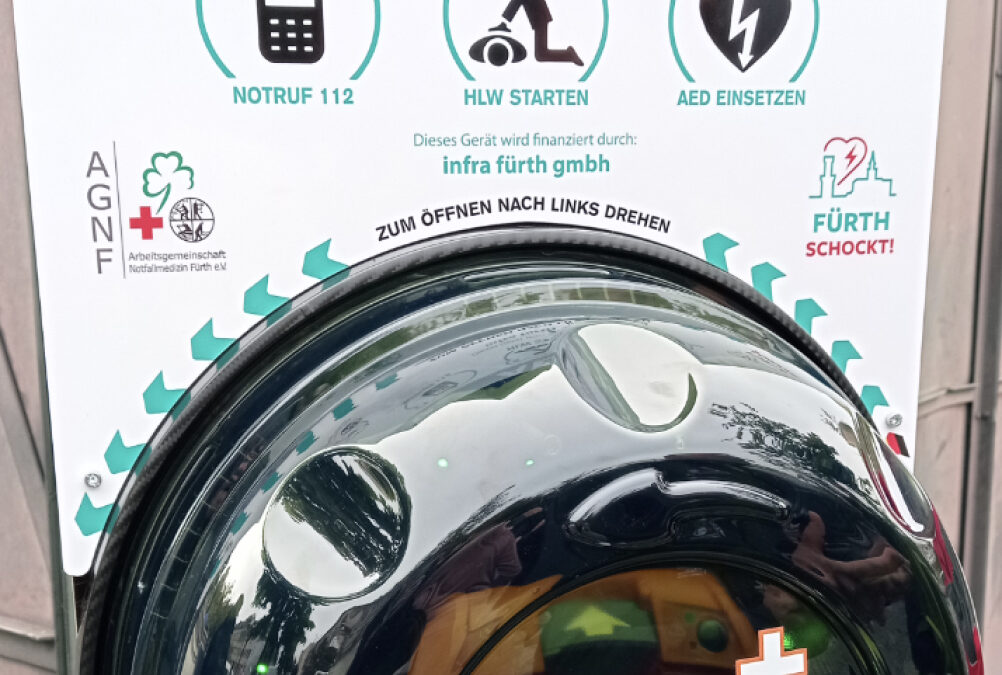A comprehensive AED structure is a key factor in improving survival after cardiac arrest. The professional rescue service takes an average of 8-10 minutes to arrive. For this reason, first aiders (e.g. relatives, colleagues, witnesses) play a decisive role in resuscitation by acting safely. There are more than 70,000 cases of sudden cardiac death in Germany every year. Statistically, this amounts to 180-220 people affected per year in the city and district of Fürth. Only a few survive such an event. The aim is to raise public awareness of the issue and reduce the inhibition threshold for using an AED in an emergency. “50, perhaps even 100 of these people could survive each year if we succeed in improving the conditions in the city and district of Fürth,” says Klaus Meyer, Chairman of the AGNF, which has taken over the project management on behalf of the city and district of Fürth.
There are already around 150 AED devices in the city and district of Fürth, but only 10 of them are public and therefore always accessible to first aiders. The project aims to establish a network of around 250 publicly accessible devices in the coming years. It is not just the purchase of the device that is involved. It must also be stored protected from the weather in a heated and clearly visible box, the necessary maintenance intervals must be completed, consumables replaced and a battery replacement financed after four years. A special feature of the Fürth project is that all AED devices are equipped with a special chip that enables live geodata tracking. This means that the AGNF is always informed whether a device is working properly, what the battery charge status is, whether it is being used and where the device is currently located. CardiLink from Fürth is contributing this innovation. After use, the device is made ready for operation again and is available for use on site after a short time. All these services were previously the responsibility of the owner, which often prevented them from being placed in public spaces.
“As far as we know, the “Fürth SCHOCKT!” project is the only project in Germany to date with such a comprehensive range of services and solutions,” says Klaus Meyer.
AED sponsors are being sought who are willing to finance a publicly accessible device. For example, at a company location, at a sports club, the church community or through a private donation. This can be taken over for 4 or 8 years.
In addition to the AGNF, the district and the city of Fürth, other partners are also supporting the project. The Bavarian Red Cross District Association of Fürth, the city and district fire departments, the Fürth Hospital, the Fürth Doctors’ Network, the “Fürth drückt!” initiative, the Greuther Fürth football club and infra fürth as an infrastructure and media partner are also involved.
In the coming year, the project is to be supplemented by a smartphone-based alerting system for first responders. The aim is to activate pre-registered first aiders in the immediate vicinity of an incident who can quickly initiate resuscitation measures. A very successful project that has been established in Freiburg for 6 years entitled “Region of Lifesavers” serves as a blueprint.
